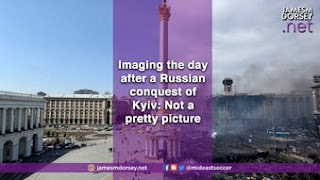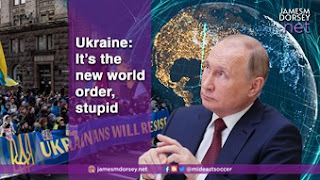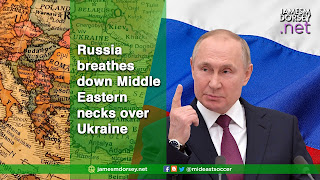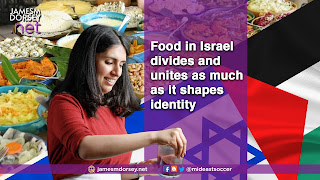Ukraine: Lessons not being learned
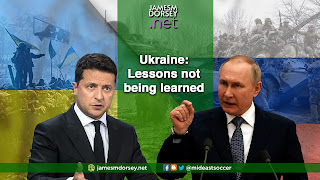
By James M. Dorsey Russian President Vladimir Putin's invasion of Ukraine and the international condemnation it generated contains key lessons for policymakers. They are lessons that should have been learned in past global crises but weren't. However, the Ukraine crisis offers an opportunity to correct that mistake. A first lesson is that failure to firmly stand up to violations of international law as they occur convinces trespassers that they can get away with them. It emboldens violators to commit ever more flagrant infringements. Kicking the can down the road by failing to immediately and firmly respond to violations amounts to allowing an open wound to fester. The longer the wound festers, the more difficult, costly, and risky it is to cure it. The last 14 years of Mr. Putin's rule are a case in point. Mr. Putin began the recreation of his Russian world in 2008 when he recognized the two Georgian breakaway republics of Abkhazia and North Ossetia. The recognition consti...

